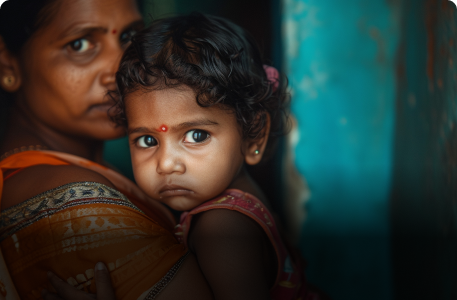
What Are The Different Types Of Preborn Disabilities?
Preborn disabilities can be obvious or unseen. Some types of birth defects and abnormalities may be detected before birth, while others may not be discovered until a child is several years old. No matter what, each life matters to God.
What Are Preborn Disabilities?
Some preborn disabilities can be detected before a baby is born. Some can even be treated while the baby is still growing in his mother’s womb.
Here are some examples of different types.
Visibly Obvious Disabilities And Birth Defects
Some preborn disabilities are visibly obvious and are noticed right away when a baby is born. A missing arm or leg is one example.
Limb differences may be detected before birth on a prenatal ultrasound. Australian mom Tamika Bax experienced this when she was given the option to abort her child when the sonographer could not locate her baby’s arm. However, Tamika chose life for her child, and little Mikala is thriving with what her mom calls her “lucky fin.”
Internal Disabilities And Birth Defects
Other preborn disabilities may be inside of the baby’s growing body, and modern medicine makes it possible to correct some types of birth defects before the baby is born.
For example, surgery before birth can help repair a hole in a preborn baby’s diaphragm or relieve a urinary tract blockage to protect an unborn child’s kidneys.
Fetal surgery is also used before birth to help babies diagnosed with spina bifida. This was the case for Samuel Armas, who became famous for the photo “Hand of Hope,” which pictured his in-utero surgery in 1999.
Disabilities From Genetic Causes
Genetic and hereditary factors cause other types of preborn disabilities, including Down syndrome and Turner syndrome.
Prenatal tests are used to screen for these disabilities, and sadly, as many as 60 to 90 percent of American children diagnosed with Down syndrome are aborted.
Affirming The Sanctity Of Life For Those With Preborn Disabilities
All of us are created in the image of God, and this includes children who are diagnosed with disabilities before they are born.
This is why we believe so strongly in meeting the needs of parents facing a difficult prenatal diagnosis. And, after the child is born, that’s why we keep providing programs that support caregivers and increase accessibility and empowerment for people who experience disabilities.
Together, we can make a difference. Will you join us in investing in the sanctity of human life today?

0
Give Now